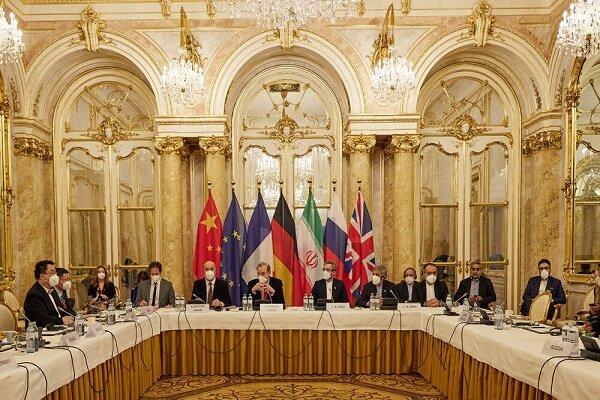Setting deadlines won’t work
The talks, however, made progress that the Russian lead negotiator described as “indisputable.” Commenting on Tuesday’s negotiations over the Joint Comprehensive Plan of Action (JCPOA), the Russia envoy to the talks said, “Today in the course of Vienna Talks on JCPOA the working group on nuclear issues held a useful meeting. We observe indisputable progress. Sanctions lifting is being actively discussed in informal settings.”
The purported progress at the talks was made thanks to the Iranian initiative. Iran constructively engaged in the nuclear part of the talks in a bid to pave the way for result-oriented talks. During the past rounds of talks, Iran presented at least two main draft proposals each pertaining to specific subjects.
"The talks, however, made progress that the Russian lead negotiator described as “indisputable.” Commenting on Tuesday’s negotiations over the Joint Comprehensive Plan of Action (JCPOA), the Russia envoy to the talks said, “Today in the course of Vienna Talks on JCPOA the working group on nuclear issues held a useful meeting"
The Europeans presented nothing but grumbling and blame-game. Of course, their behavior during the current round was less hostile at the media level compared to the past rounds, though they sought to create a sense of urgency regarding the talks by unofficially setting self-imposed deadlines for concluding the talks.
European diplomatic sources told some regional media outlets that there is an unannounced deadline of four weeks for the talks ending in early February. Officially, the Europeans and Americans have not set such a deadline. But they, on several occasions, made remarks signaling that there are only a few weeks remaining to salvage the JCPOA.
Chief EU negotiator Enrique Mora said at the beginning of this round that the negotiators have a timespan of weeks, not months, to reach a final deal.
The E3 negotiators also echoed the same thing in a statement to Western reporters. “We have some weeks and not months to reach an agreement,” the statement said, noting that they won’t set “artificial deadlines.”
Aside from the Europeans’ paradoxical behavior, the issue of setting a deadline does not have the potential of forcing a change in Iran’s calculus. Because Tehran, while not opposing a deal at the shortest time possible, has made it clear that it will not sign a deal at any cost. In other words, it won’t cross its red lines in order to expedite the process of negotiations.
"Of course, their behavior during the current round was less hostile at the media level compared to the past rounds, though they sought to create a sense of urgency regarding the talks by unofficially setting self-imposed deadlines for concluding the talks"Therefore, any European move to play the game of deadlines would produce no results for the West.
Instead of playing on the issue of time, the Europeans should abandon their diplomatic inertia by presenting serious initiatives to move the talks forward. One point of note is the Europeans’ position in the past negotiations. During the past rounds, the E3 negotiators were largely reduced to playing the role of courier between Iran and the US with no direct European impact on state of things.
If the E3 really wants to address the urgency of the situation then they must first relinquish their past role and proactively engage in substantive discussions regarding verification details and guarantees Iran has demanded as part of reviving the original JCPOA.
The issue of verification and guarantees bring us to another point of contention at the Vienna talks.
Taking note of the US track record in non-complying with the terms of the JCPOA ever since its signing, Iran has demanded that the US provide it with guarantees that Washington won’t renege on its commitments under a revived JCPOA again. Besides, Iran said it wants an agreed period of time to verify the lifting of US sanctions before starting to fully implement its commitments under the JCPOA.
No progress has been reported yet on these two issues despite the fact that Iran has every reason to demand them. The underlying reason for Iran to demand a kind of insurance measure derives from a number of facts known to everyone around the world: First, US foreign policy is no longer a predictable, stable issue. And in some such cases as Trump’s withdrawal spree from almost all U.S.
"European diplomatic sources told some regional media outlets that there is an unannounced deadline of four weeks for the talks ending in early February"global commitments, US foreign policy was contrary to common sense, too.
Second, even under Barak Obama, the architect of the deal, the US failed to fully honor its JCPOA obligations. Third, the European did nothing to compensate Iran when the US, in complete disregard for European objection, withdrew from the JCPOA. Fourth, the hostile atmosphere in the US Congress against Iran, which makes it quite possible that a number of Iran hawks on Capitol Hill would push for legislation and bills violating the terms of the JCPOA even if the White House decided to remain committed to it.
First Time Published in Tehran Times.
Related news
Other news on this day
Copyright © 2001-2024 - Sarkhat.com - About Sarkhat - News Archive - جدول لیگ برتر ایران






